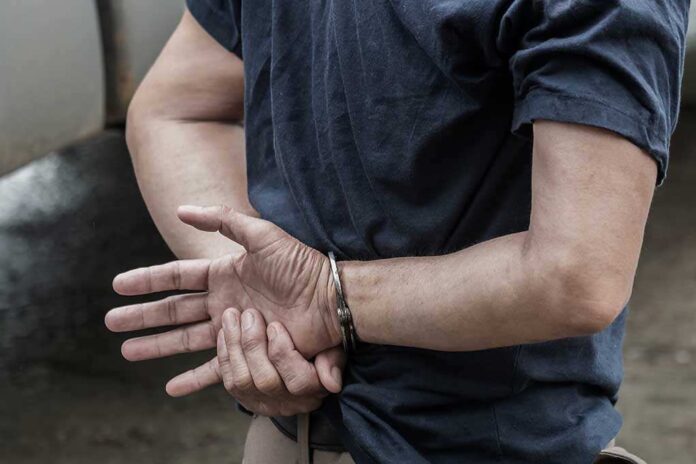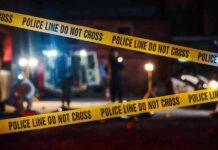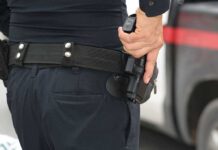
San Francisco “life coach” Sauntek Harris has been charged with four cold-blooded murders spanning two decades, revealing a shocking double life as an alleged gang member who eliminated witnesses and rivals while posing as a community activist.
Key Takeaways
- Sauntek Harris, 44, a self-proclaimed life coach and community activist from Hunters Point, has been charged with four murders dating back to 2002, allegedly committed as part of criminal street gang activities.
- Harris’ alleged accomplice, Shaun Britton, 48, faces one murder charge in connection with the 2002 killing of Perry Bradstreet, whose vehicle was reportedly carjacked and set on fire after the murder.
- The victims include Perry Bradstreet, Lorenzo Richards, Gerald White (allegedly killed to prevent him from testifying), and Dietrich Whitley (killed in 2019 reportedly after Harris lost a fight).
- Despite his violent criminal history, Harris had positioned himself as a community leader in San Francisco’s Hunters Point neighborhood.
- Both suspects are being held without bail pending trial due to the extreme public safety risk they pose to the community.
Alleged Gang Member Posed as Community Leader While Committing Multiple Murders
Prosecutors in San Francisco have unveiled a disturbing case against Sauntek Harris, 44, who maintained a façade as a respected life coach and community activist while allegedly committing multiple murders over a span of 17 years. Harris was arrested on May 29, 2023, and charged with four separate murder counts, with the killings dating back to 2002. His alleged accomplice, Shaun Britton, 48, was also arrested and charged with one count of murder. The case represents a shocking betrayal of the Hunters Point community where Harris had positioned himself as a positive influence.
“Committed for a criminal street gang and was an act of street terrorism,” stated San Francisco District Attorney’s Office.
Pattern of Violence Spanning Two Decades
The charges against Harris and Britton detail a disturbing series of killings that began on January 18, 2002, when the pair allegedly robbed, carjacked, and fatally shot Perry Bradstreet with an assault rifle. After the murder, they reportedly set Bradstreet’s vehicle on fire to destroy evidence. Just over a month later, on February 24, 2002, Harris allegedly killed Lorenzo Richards using a 9mm semi-automatic pistol. The violence continued when Harris reportedly killed Gerald White on July 28, 2002, with prosecutors alleging that White was eliminated specifically because he was a witness in the Bradstreet case.
After a 17-year gap, Harris allegedly struck again on August 10, 2019, killing Dietrich Whitley with a semi-automatic pistol. Prosecutors claim that Harris was “lying in wait” for Whitley, and that the murder was carried out in retaliation after Harris had lost a fight with the victim. This pattern of calculated violence shows a persistent willingness to eliminate threats and settle scores through deadly force, all while Harris maintained his public persona as a community advocate.
Gang Connections and Prior Criminal History
Both Harris and Britton face special allegations that their crimes were committed to benefit a criminal street gang. Harris was previously convicted of firearm possession and drug-related offenses in January 2004, making his subsequent possession of firearms an additional felony charge. The case highlights the ongoing challenges faced by San Francisco law enforcement in addressing gang-related violence, particularly when perpetrators are embedded within the community under the guise of legitimate leadership roles.
“SAN FRANCISCO LIFE COACH ACCUSED OF KILLING SEVERAL PEOPLE DATING BACK TO 2002,” reported TCN.
The prosecution’s description of these murders as acts of “street terrorism” underscores the devastating impact gang violence continues to have on communities already struggling with poverty and crime. Both suspects are being held without bail, with authorities deeming them significant public safety risks. This case also raises serious questions about the vetting processes for community organizations and programs in high-crime areas, where individuals with violent backgrounds may exploit positions of trust to continue criminal activities while evading detection.












